
Objectives
- Learn about the significance of David Mech's 1999 publication - Alpha Status, Dominance, and Division of Labor in Wolf Packs
- What is the study is most known for?
- What is being overshadowed?
- How is this extremely useful to professional dog trainers.
- Understanding the natural behavior of canines has proven to be extremely useful to creating behavior plans.
This publication is the focus of the lecture:
Alpha Status, Dominance, and Division of Labor in Wolf Packs by L. David Mech – 1999
Who is Dave Mech and what has he done for wolves?
He is a senior research scientist for the U.S. Geological Survey and an adjunct professor at the University of Minnesota. He has researched wolves since 1958 in locations including northern Minnesota, Isle Royale, Alaska, Yellowstone National Park, Ellesmere Island, and Italy.
Mech's business site: https://www.davemech.org/
Mech's personal site: https://www.davemech.com/

What is the study most known for?
David Mech’s explanation of the Term “Alpha” in Wolf Packs - 1999.
It is widely known and referred to as the study that "debunked the alpha wolf myth"

Other common rhetoric that is paired with this information:
- Dominance is not a significant concept in dog training
- Using wolf behavior to interpret dog behavior is like using chimpanzees to understand human behavioir
The chimpanzee comparison:
- Not credible from an anthropology
- humans are not domesticated chimpanzees or even evolved from chimpanzees
- Branched from a common ancestor about 8 million years ago.
- Not credible with ethologists
- Are behavior is not readily interpreted by chimpanzee behavior
- We are not the same species or even in the same genus, dogs are the same species (just a different subspecies)
- Dogs are the domesticated version of the wolf and it is the model that ethologists use to stuudy the origin of dog behavior period. Domestication is a fairly recent event and some breeds are the result of recent crosses with wild canines. Trainers also commonly need to help clients with hybrids of certain percentages.
Mech later wrote in a letter to Psychology Today that:
“This misinterpretation and total misinformation like Kelley’s (referring to an article about “dominance debunked”) has plagued me for years now. I do not in any way reject the notion of dominance.”
The concepts of dominance remain a central subject to many of Mech's his future publications
From Leadership in Wolves, Mech - 2000
Do not confuse ethology with training techniques for dogs. We use this information to understand the behavior.
Quote from Dave Mech when questioned about how is study has been used in the dog training industry:
What is being overshadowed?
The whole idea that a family unit is the best functioning unit which leads to fewer problems.
Analogy:
Human families vs refugee camps
Dispersal
Most young wolves disperse when 1-2 years old. Few remain beyond 3.
In captivity, they are forced to stay together.
Significance in our home and dog on dog aggression
Predicting "Alpha"
In captivity more predictable
Naturally, they are all potential "alpha"
Domestic significance: All dogs can potentially be subordinate or dominant (it is not fixed at birth)
How they become "Alpha"
In captivity, there is a confrontation
In nature, it is automatic by becoming a parent
significance: How we raise pups and the best way to become "alpha"
Scent Marking
No difference between captive and natural
Food Ownership (resource guarding)
All defended food regardless of rank (recorded in captive wolves as well)
Other evidence of disconnect from status:
Rank order in non breeders
- pups/yearlings/and 2 year old few rank displays
- What is observes is based on age between these groups
significance:
Nothing to contest over when there are no resources to compete over (only the parents breed) Food is controlled by the parents and generally the only demonstartion of "dominance". Do not confuse thsi with leadership which is next lecture.
Dominance differences captive vs natural
another mention
Other for understanding canine behavior
- captive - two seperate heirachies
- natural - male dominated all, female dominated all but the male. (determined by greetings when seperated - not possible with captive packs).
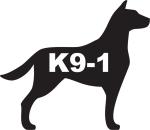

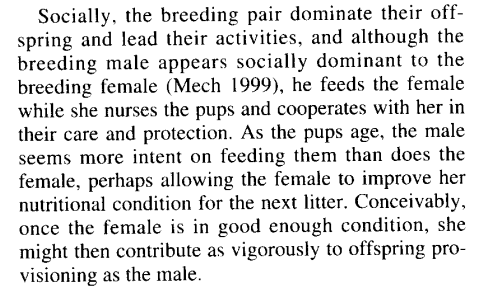
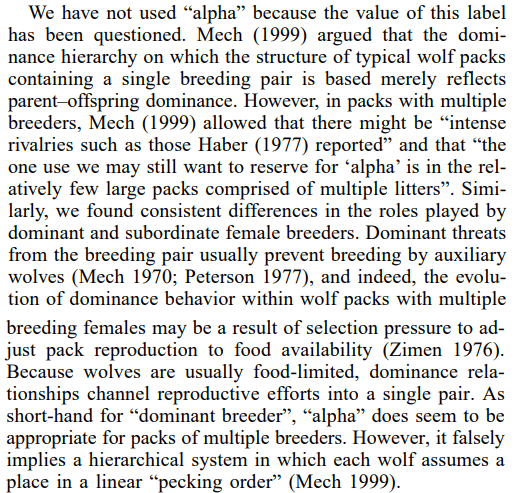

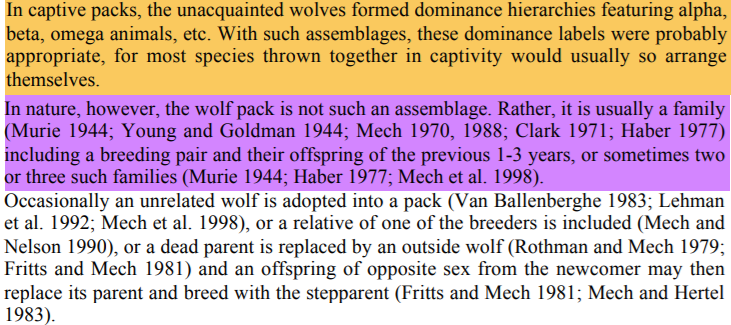

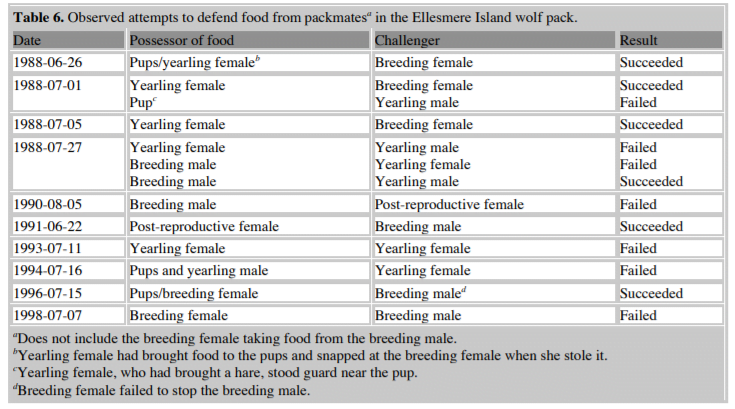

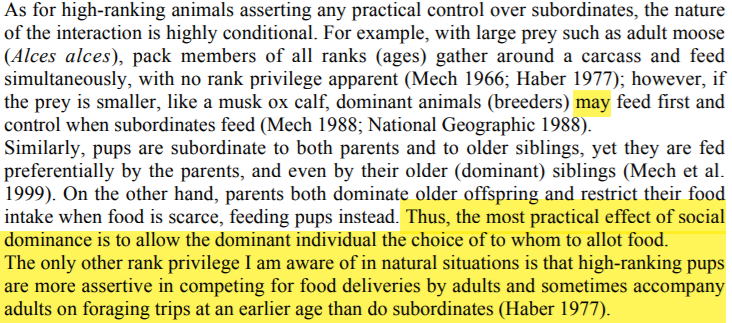

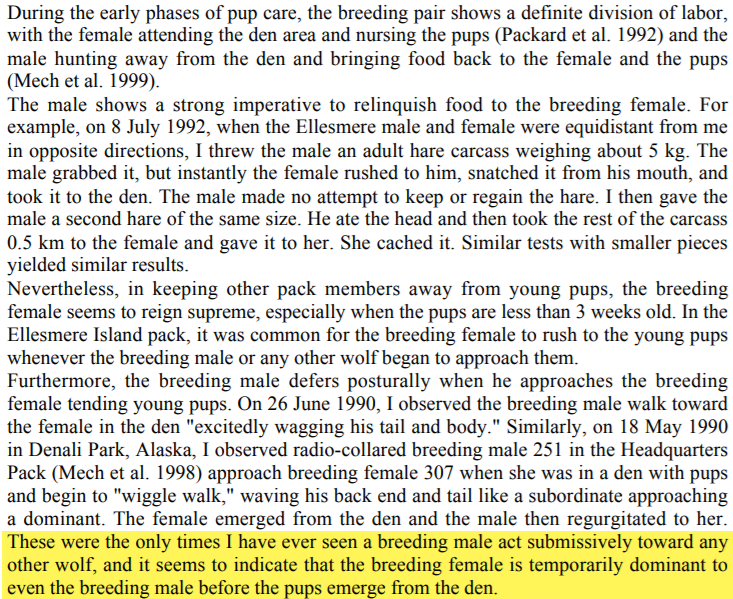
Responses